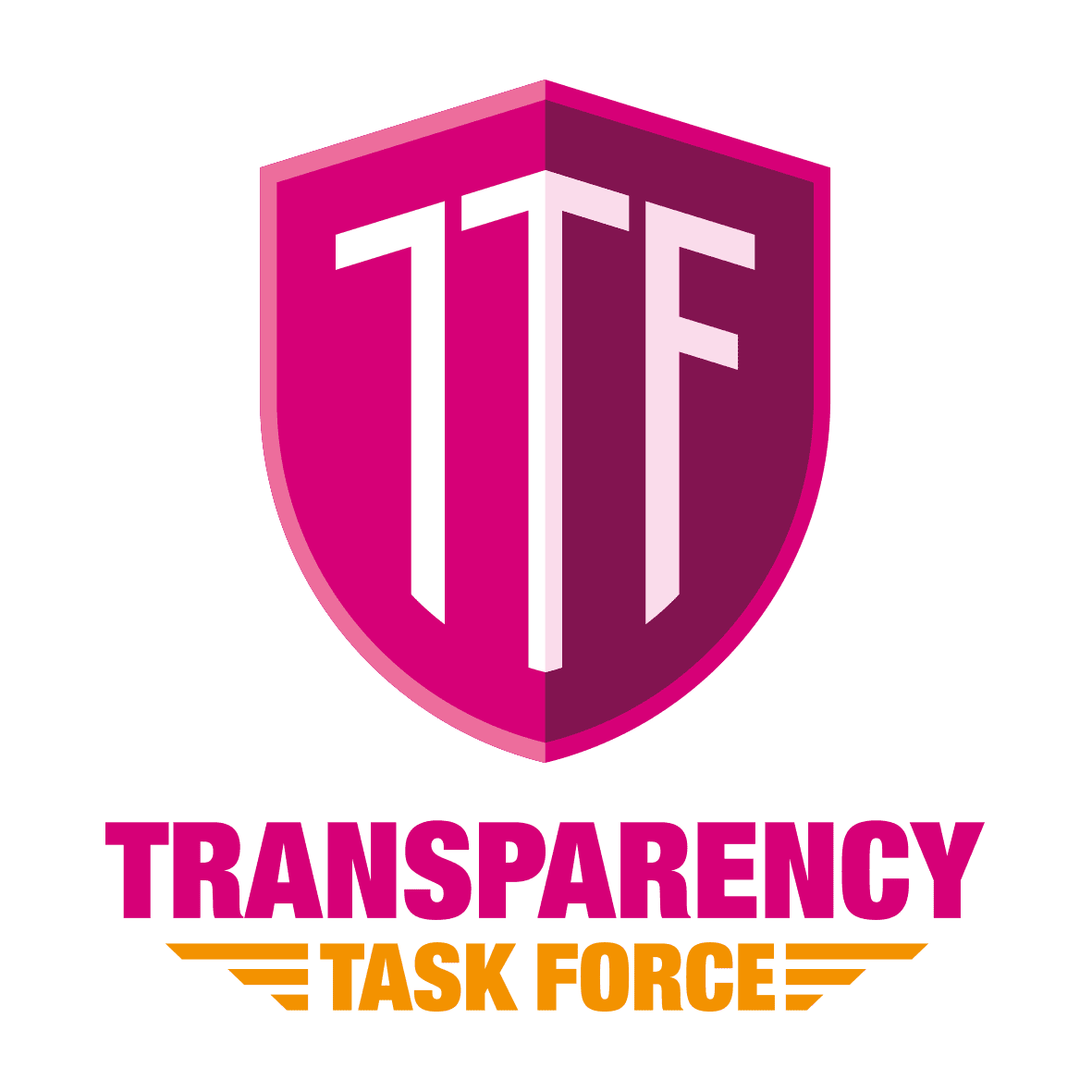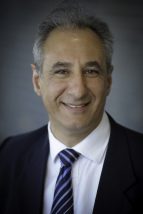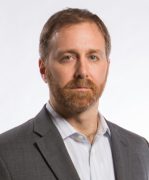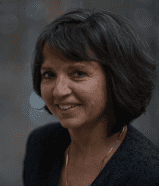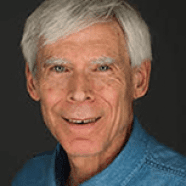How can we accelerate the rebuilding of trust and confidence in financial services?
Boston - 12/09/2019 9:00 am
Places are limited; to secure yours:
Click on the button below to secure your place and note that there are 3 ticket options: Standard, Discounted and Complimentary.
We are a not-for-profit and we desperately need funds to cover our costs and keep our many finance reform initiatives alive – we’re just about surviving.
You can pay through PayPal or invoice.
Many thanks to :

Thanks to our sponsors :
![]()
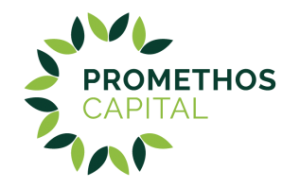

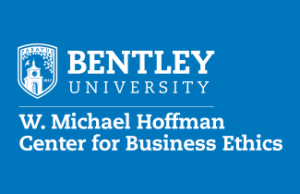
Here’s the programme, so far*
- 09:00 – Registration, refreshments and networking
- 09:30 – Welcome to the event by Robert Hughes, First Republic Bank
- 09:35 – Andy Agathangelou, Founder of the Transparency Task Force to introduce the Transparency Task Force and set the scene for the event; explaining the overall rationale for this major international project; and how we plan to make it a success.
Andy will shine a light on:
-
- What the trust deficit is and why it must be dealt with
- Why all stakeholders should be working together
- “The Framework for Finance Reform”
- “The 12 Finance Development Goals”
- “The book that is much more than just a book”
- “The Subject-Matter Experts”
- “The Scientific Committee
- The output so far from meetings in Europe and the USA
- What the trust deficit is and why it must be dealt with
- 10:40 – Presentation by David H. Webber, Professor of Law and Associate Dean for Intellectual Life, Boston University School of Law; Published Author
- 11:00 – Refreshments and further networking
- 11:30 – Presentation by Stefan Pagacik, Founder, AI 4 Impact; Ambassador of the Transparency Task Force
- How can we make the idea of a “Financial Consumer’s Bill of Rights” work well?
- 11:50 – Presentation by Bernie Nelson, President for Style Analytics in North America; Ambassador of the Transparency Task Force
- 12:10 – Presentation by Ivka Kalus, Chief Investment Officer and Managing Partner, Promethos Capital
- Ivka will be talking about purposeful investing in public markets and why it matters. Externality risks in the public markets have been mispriced due to lack of attention by the financial services sector, partly due to lack of transparency.
- Capital allocation remains one of the most efficient and fastest mechanisms for influencing corporate behavior, and can be deployed to push for transparency related to public market externality creation and mitigation.
- 12:30 – Presentation by Robert McNulty, Director of Programs, Hoffman Center for Business Ethics
- 12:50 – Presentation of the Transparency Trophy; a special trophy is awarded to a champion of transparency and finance reform at each of our symposia around the world
- 13:00 – Lunch and networking
- 14:00 – The Power Panel, where selected participants will have the opportunity to share their reflections on the presentations and discussions; and to share their thoughts on our primary question:
- “How can we accelerate the rebuilding of trust and confidence in financial services?”
- Our Power Panellists are:
- Dr. Sam Savage, Executive Director, Probability Management
- Panellist to be added
- Panellist to be added
- Panellist to be added
- Our Power Panellists are:
- 14:50 – The Open Debate; where all attendees, panellists and speakers will have the opportunity to freely discuss the key issues raised through the course of the symposium.
- We will be considering question such as:
- Which individuals and organisations govern the way the financial system works?
- What should we have learned from the past? …and have those lessons actually been learned?
- What more could the government and the financial regulators be doing to create a financial services market that the public can have trust and confidence in?
- Which non-government and non-regulatory organisations have the potential to play a part in driving the change that we want to see?
- Are there forces at work slowing down or even preventing the progress that is needed?
- We will be considering question such as:
- 15:25 – Andy Agathangelou, Founder of the Transparency Task Force to cover off key conclusions and suggested next steps
- 15:30 – Refreshments and further networking
- 16:00 – Final close
- *The programme will continuously evolve so is subject to change
For more detail about the project…
Click on the button below to get to a special web page that provides a full and detailed explanation of the project:
What can you expect at your meeting?
You can expect to be amongst progressively-minded and collaboratively-minded people who are keen to understand how they can get involved with a truly pioneering project that is dedicated to reforming the financial services industry.
We are working together to help rebuild trust and confidence in financial services and help consumers get a better deal.
You will learn all about the project – how it started; what has happened so far; what is going to be happening in due course and so on.
In particular, you will be able to learn about and feed into the creation of a “Framework for Finance Reform.” At the heart of the “Framework for Finance Reform” are “The 12 Finance Development Goals.”
The 12 Finance Development Goals are a similar concept to the United Nations’ Sustainable Development Goals but instead of dealing with issues such as hunger, climate change, access to clean water and gender equality; they deal with well-known financial services problem areas such as conflicts of interest, the “profits before principles” mindset, the need for better governance and the desperate need for greater transparency.
The development of the Finance Development Goals (FDGs) is bringing together a very wide cross-section of stakeholders, right around the world, including politicians, policymakers, financial regulators, financial trade bodies and professional associations; plus many commercial organisations, leading academics and think tanks etc.
You will learn how the project is gaining traction amongst a wide cross-section of stakeholders including policymakers, politicians, regulators, professional associations, trade bodies, academics, thought leaders, commercial organisations; plus investment, insurance, banking and pension professionals, and so on.
There will be presentations from individuals with interesting insights and experiences to share; plus a panel session.
There will be ample scope for discussion and debate so that all attendees will be able to share their views and ideas.
You can expect the meeting to function as a highly interactive and highly engaging workshop, where everybody gets the opportunity to participate as much as they would like to.
We know that using that approach we will be able to harness the camaraderie, collegiality and willingness to collaborate that the project is already cultivating, right around the world.
Bios of key participants provided thus far*
Andy Agathangelou FRSA, Founder, Transparency Task Force
Andy will be Chairing the Symposium. His overall objective is to galvanise support for the idea that greater transparency in financial services can drive positive, transformational change for the benefit of all.
Andy formed the Transparency Task Force following a meeting he led at Senate House, University of London on 6th May 2015. The meeting was the about the trust deficit that is impacting financial services and how harnessing the transformational power of transparency can drive the change that is needed.
That meeting set off a chain of events that led directly to the creation of the collaborative, campaigning community that is the Transparency Task Force.
Our activity is is built on the idea that ‘Sunlight is the Best Disinfectant’ and our guiding “North Star” question is “what is best for the consumer?”
The mission of the Transparency Task Force is
“To help protect consumers’ financial interests by reforming the financial services industry around the world, through harnessing the transformational power of transprency”
We have many Special Interest Groups made up of subject-matter experts working collaboratively:
https://transparencytaskforce.org/teams-of-volunteers/
We are building a global network of Ambassadors:
We are working hard to rebuild trust and confidence in financial services through creating a Framework for Finance Reform built on the Finance Development Goals:
https://transparencytaskforce.org/rebuilding-trust-confidence-in-financial-services/
We have a highly credible Advisory Board:
https://transparencytaskforce.org/about-1/advisory-board/
Andy is also:
Chair, the Interoperability Steering Group
Governor, Pensions Policy Institute
Fellow, the RSA
Former Chair, Pensions BIB
Former Founding Chair, Friends of Auto Enrolment
Former Founding Chair, Friends of the Association of Member Nominated Trustees
Prof. David Webber, Professor of Law, Boston University School of Law
David H. Webber is the author of The Rise of the Working-Class Shareholder: Labor’s Last Best Weapon, published by Harvard University Press in April 2018. Webber has toured extensively for the book, and has published op-eds about it in theNew York Times, the Washington Post, the Chicago Tribune, the Los Angeles Times, In These Times, and elsewhere. The book has been reviewed or otherwise covered in the New York Review of Books, twice by the Financial Times, Publisher’s Weekly, Bloomberg Radio, CSPAN’s BookTV, Forbes, Nightly Business Report, NPR’s Marketplace, the Harvard Law School Forum on Corporate Governance and Financial Regulation, the Harvard OnLabor blog, Cornell University’s ILR Review, Rorotoko, de Volkskrant, Calcalist, the Majority Report with Sam Seder,the David Pakman Show, Knowledge@Wharton Business Radio, Splinter News, Dissent, Agence France-Presse, Reuters, and others.
Webber co-edited a second book, Research Handbook on Representative Shareholder Litigation (Elgar), published in November 2018. He has published scholarly articles including “The Use and Abuse of Labor’s Capital” in the New York University Law Reviewand “The Plight of the Individual Investor in Securities Class Actions” in the Northwestern University Law Review, with additional work forthcoming in the Vanderbilt Law Review and elsewhere. Webber has presented his research at the Harvard Stanford Yale Junior Faculty Forum, the Conference on Empirical Legal Studies, and the American Law and Economics Association conference, among others.
Webber is the winner of Boston University School of Law’s 2017 Michael Melton Award for Teaching Excellence. He also co-teaches the Pensions and Capital Stewardship course for the Harvard Trade Union program at Harvard Law School. He is a graduate of Columbia and NYU Law School, where he was an editor for the law review.
Bernie Nelson, President,
Style Analytics,
North America
Prior to joining Style Research, Bernie held positions as Head of Risk and Head of Quantitative Analysis at Scottish Widows Investment Partnership, then the asset management arm of Lloyds TSB and one of Europe’s largest asset managers. He was responsible for developing portfolio risk management and integrating quantitative techniques into a fundamentally based investment process.
Bernie has also managed structured products and index funds, and has financial engineering experience as a derivative products analyst. Bernie speaks regularly at international investment conferences on factor investing, smart beta, environmental social and governance (ESG) investing, and style and risk analysis in asset management.
Bernie holds an Honors degree in Mathematics from Edinburgh University. He is an Affiliate of the UK Society of Investment Professionals, a member of the CFA Institute, and a member of the CFA Society Boston.
Robert McNulty, Director of Programs, Hoffman Center for Business Ethics
After many years in business and academia, in 2006, Robert McNulty joined the Philosophy Department at Bentley University and a year later, moved to the Hoffman Center for Business Ethics at Bentley. He has been responsible for many aspects of the Center’s educational, communications, and research activities. The focus of McNulty’s work is theoretical and applied ethics, as well as ways to advance peace amid growing international tensions and global threats from war and terrorism. At Bentley, he launched the Bentley Business for Peace initiative based on which he arranged to bring to Bentley cohorts of scholars from ten countries in conflict to explore how business can contribute to greater peace and stability. He served on the advisory board of the United Nations Global Compact Business for Peace Initiative and was the first co-chair of the UN’s Principles for Responsible Management Education (PRME) Business for Peace Working Group. He has published numerous journal articles on business ethics and business for peace and was on the editorial board of the journal, Business, Peace and Sustainable Development.
Recently, he has launched the Center’s communications via social media. He is the founder and executive director of the nonprofit organization, Applied Ethics, Inc., the main work of which is the Pax Populi people-to-people peacebuilding initiative, which offers online English language tutoring via videoconference to students living in Afghanistan, a country he has visited on three occasions for this work. Earlier in his career, he had a career in international business, specializing in the application of public relations to assist countries in their economic development efforts. Robert has three master’s degrees (International Affairs, Educational Administration, and Philosophy and Education) and a PhD, with distinction, in Philosophy and Education, all from Columbia University. Outside the US, Robert has lived in four countries, France, Taiwan, Singapore, and Indonesia and has traveled extensively throughout Asia, Europe, the Middle East, and, to a lesser extent, Latin America.
After many years in business and academia, in 2006, Robert McNulty joined the Philosophy Department at Bentley University and a year later, moved to the Hoffman Center for Business Ethics at Bentley. He has been responsible for many aspects of the Center’s educational, communications, and research activities. The focus of McNulty’s work is theoretical and applied ethics, as well as ways to advance peace amid growing international tensions and global threats from war and terrorism. At Bentley, he launched the Bentley Business for Peace initiative based on which he arranged to bring to Bentley cohorts of scholars from ten countries in conflict to explore how business can contribute to greater peace and stability. He served on the advisory board of the United Nations Global Compact Business for Peace Initiative and was the first co-chair of the UN’s Principles for Responsible Management Education (PRME) Business for Peace Working Group.
He has published numerous journal articles on business ethics and business for peace and was on the editorial board of the journal, Business, Peace and Sustainable Development. Recently, he has launched the Center’s communications via social media. He is the founder and executive director of the nonprofit organization, Applied Ethics, Inc., the main work of which is the Pax Populi people-to-people peacebuilding initiative, which offers online English language tutoring via videoconference to students living in Afghanistan, a country he has visited on three occasions for this work. Earlier in his career, he had a career in international business, specializing in the application of public relations to assist countries in their economic development efforts.
Robert has three master’s degrees (International Affairs, Educational Administration, and Philosophy and Education) and a PhD, with distinction, in Philosophy and Education, all from Columbia University. Outside the US, Robert has lived in four countries, France, Taiwan, Singapore, and Indonesia and has traveled extensively throughout Asia, Europe, the Middle East, and, to a lesser extent, Latin America.
Ivka Kalus, Chief Investment Officer & Managing Partner, Promethos Capital
Ivka is an accomplished investor with over 20 years experience managing global and international equity portfolios for retail and institutional clients. She has experience launching new investment strategies, both active and indexed, and has significant expertise in sustainable investing (ESG and SRI) and gender-lens investing.
Before co-founding Promethos, Ivka was lead portfolio manager of International Strategies at Boston Advisors. Prior to joining Boston Advisors in 2015, Ivka was a senior portfolio manager at Pax World Management, where she managed the Pax World International Fund and the Pax World Global Women’s Equality Fund. Before Pax World, she managed international and global portfolios at State Street Global Advisors and Baring Asset Management, and was a global equity analyst at Independence Investments and at Putnam Investments.
Early in her career, Ivka worked as a management consultant to large corporations in the U.S., Europe and Latin America, including three years in Prague working on projects to privatize state-owned Czech companies.
Ivka’s global investment expertise is enhanced by her experience living and working around the world and her ability to communicate effectively in English, French, German, Spanish and Czech. She earned a B.A. degree in biology from Harvard University, a Master’s degree from the Fletcher School of Law and Diplomacy, and an M.B.A from INSEAD. Ivka currently serves on the boards of the Boston Economics Club, United Planet, and American Boronite Corporation.
Stefan Pagacik Co-Founder, AI4Impact
Stefan Pagacik’s career has spanned several industries and roles, most recently as co-founder of AI4Impact, an artificial intelligence platform focused on building next generation impact financial products. Previously, he built two impact themed cloud and mobile platforms (8 of 9 LLC and my4.com) for retail and institutional investors interested in aligning their values and criteria with their portfolios. His prior entrepreneurial experience involved starting a marine science accelerator in Southeastern Massachusetts (the Regional Technology Development Center of Cape Cod) that commercialized scientific developments in partnership with the Woods Hole Oceanographic Institute and the Marine Biological Laboratory.
His work in the impact space started with a project building a model for an energy transition solution from fossil fuels to biofuels for the government of Chile. He also designed a social enterprise plan for the city of Detroit aligning entrepreneurs and city agencies to stimulate business opportunities for blighted areas of the city including a sustainable food corridor and an incubator focused on women and minorities.
Stefan’s technology background includes retail sales consulting for Apple Computers in the Northeast and building a channel strategy for an emerging leading-edge motion graphics software company (The Company of Science and Art) that was later acquired by Adobe. He opened the Boston office of IT consulting firm Eclipse Information Systems that was later acquired by Century Services of Washington, D.C.
Stefan also has an active speaking practice centered around his experience in building innovation teams in large and small companies. You can find more information at his website: www.direct-ly.net
Professional Affiliations:
Board member, New England Impact Investing Initiative (current)
Ambassador, The Transparency Task Force (current)
Education:
B.A., English, Harvard College
MBA, Marketing and Finance, Suffolk University
Advisory Skills:
Impact and sustainability mapping and measurement, building and managing diverse teams that drive innovative solutions, communication strategies to build trust and transparency, product design and development, entrepreneurial leadership
Dr. Sam Savage Executive Director, Probability Management
Dr. Sam L. Savage is Executive Director of ProbabilityManagement.org, a 501(c)(3) nonprofit devoted to the communication and calculation of uncertainty.
Dr. Savage is the author of “The Flaw of Averages: Why We Underestimate Risk in the Face of Uncertainty” (John Wiley & Sons, 2009, 2012), and is an Adjunct Professor in Civil and Environmental Engineering at Stanford University as well as a Fellow of the Judge Business School at Cambridge University.
He is the inventor of the Stochastic Information Packet (SIP), an auditable data array for conveying uncertainty.
He received his Ph.D. in computational complexity from Yale University.
Further information about the TTF
You can click on the button below to read about the 130+ Transparency Task Force Ambassadors. The list includes world class academics and highly respected thought leaders from right around the world.
Transparency Task Force Advisory Board
You can click on the button below to read about the Transparency Task Force Advisory Board, which is Chaired by the former Chair of the Financial Conduct Authority’s Financial Services Consumer Panel.
If you want to read testimonials…
If you haven’t been to one of our events before you can use the link below to read some testimonials:
